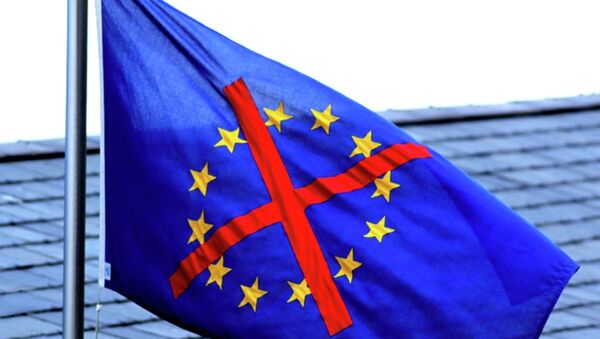As Hungary sealed off its Serbian border and brought in emergency laws to arrest anyone caught damaging or breaching its razor wire fence along its border, the Schengen no-borders agreement looked increasingly shaky.
European Commission president Jean-Claude Juncker managed to agree a deal to relocate 40,000 refugees from Italy, Greece and Hungary, but the fate of the other 120,000 was put back to their next scheduled meeting in October.
Juncker spent much of Monday trying to convince the prime ministers of Poland, Slovakia and Hungary to accept the binding quote. "It is about European solidarity, a fair distribution of refugees in Europe," he is reported to have pleaded repeatedly.
The failure to agree binding quotas follows a similar breakdown in talks in June. The Czech Republic, Hungary, Poland and Slovakia are all against compulsory burden-sharing quotas.
The Schengen Agreement — which includes EU and non-EU countries — of borderless nations, is under threat after disagreements over how to deal with the hundreds of thousands of refugees and migrants flowing out of Syria, Iraq, Turkey, the Balkans and Africa. Some are genuine refugees fleeing war zones and political or religious persecution.
At extraordinary Justice&Home Affairs Council on #refugeecrisis. Our external action is credible & strong only if we are united internally
— Federica Mogherini (@FedericaMog) September 14, 2015
However, some countries are calling for genuine refugees to be distinguished from economic migrants and that everyone should be processed at the point of entry into the Schengen Zone, but Greece and Italy — who have borne the brunt of the initial wave — have struggled to deal with the sheer volume.
'Europe Is Being Torn Apart'
The borderless principle of Schengen has been further damaged by member states closing their borders of re-instating border checks. Germany closed its border with Austria on Sunday night and suspended train services as it struggled to deal with the influx of migrants and refugees. Although train services resumed Monday, border controls were still in place.
Austria also announced it would begin introducing border controls to deal with the 500 refugees an hour arriving from Hungary. On Monday, Slovakia also introduced controls along its borders with Austria and Hungary.
The sense of frustration at a lack of consensus was apparent in the statement released by the European Commission, Monday night:
"The European Union can only function if everyone plays by the rules. The Schengen system and all its benefits can only be preserved if EU Member States work together swiftly, responsibly and with solidarity in managing the refugee crisis."
"We must keep the borders between EU Member States open, but at the same time we also need stronger joint efforts to secure our external borders," the statement said.
And the splits between nations were brought into relief by the conflicting responses from different countries. Luxembourg's Foreign Minister, Jean Asselborn said:
"We must act together now, otherwise Europe is being torn apart. This will be a domino effect, and we can forget Schengen".
But Robert Kalinak, the Slovak Minister of the Interior, retorted:
"We think that quotas are not the right solution."
With tens of thousands flooding across the Schengen borders and the fundamental principle being suspended or ignored, Europe is no nearer showing leadership or solidarity in the current crisis.




